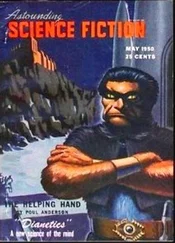“Sorry, Cale,” he said, shoving the remains of his food into his mouth at the same time as he stepped out from behind the bench and hurried off carrying his tray.
Cale sat down and looked at his supper: there was something that looked like a sausage, but was not, covered in a watery gravy with some indeterminate root vegetable bleached by endless boiling into a yellowy pale mush. In a bowl beside it was porridge, gelatinous and cold and gray as week-old slush. For a moment, starving as he was, he couldn’t bring himself to start eating. Then someone pushed his way onto the bench beside him. Cale didn’t look at him but started to eat. Only the slight twitch at the edge of his mouth revealed what filthy stuff it was.
The boy who had pushed in next to him started to speak, but so low was his voice that only Cale could hear. It was unwise to be caught speaking to another boy at mealtimes.
“I found something,” said the boy, the excitement clear even though he was barely audible.
“Good for you,” replied Cale without emotion.
“Something wonderful.”
This time Cale did not react at all, instead concentrating on getting the porridge down without gagging. There was a pause from the boy.
“There’s food. Food you can eat.” Cale barely raised his head, but the boy next to him knew that he had won.
“Why should I believe you?”
“Vague Henri was with me. Meet us at seven behind the Hanged Redeemer.”
With that the boy stood up and was gone. Cale raised his head, and a strange look of longing came over his face, so different from the cold mask he usually showed the world that the boy opposite stared at him.
“Don’t you want that?” said the boy, eyes bright with hope as if the rancid sausage and waxy gray porridge offered more joy than he could easily comprehend.
Cale did not reply or look at the boy but began eating again, forcing himself to swallow and trying not to be sick.
When he had finished, Cale took his wooden tray to the cleanorium, scrubbed it in the bowl with sand and put it back in its rack. On his way out, watched by a Redeemer sitting in a huge high chair from which he could survey the refectory, Cale knelt in front of the statue of the Hanged Redeemer, beat his breast three times and muttered, “I am Sin, I am Sin, I am Sin,” without the slightest regard for what the words meant.
Outside it was dark and the evening fog had descended. This was good; it would make it easier for Cale to slip unnoticed from the ambo into the bushes that grew behind the great statue.
By the time he arrived Cale was unable to see more than fifteen feet in front of him. He stepped down from the ambo and onto the gravel in front of the statue.
This was the largest of all the holy gibbets in the Sanctuary, and there must have been hundreds of them, some of them no larger than a few inches, nailed to walls, set in niches, decorating the tubs of holy ashes at the end of every corridor and on the spaces above every door. They were so common, so frequently referred to, that the image itself had long ago lost any meaning. Nobody, except the freshboys, really noticed them for what they were: models of a man hanging from a gallows with a rope around his neck, his body hatched with scars from the torture before his execution, his broken legs dangling at strange angles beneath him. Holy gibbets of the Hanged Redeemer made during the Sanctuary’s founding a thousand years before were crude and tended to a straightforward realism: a terror in the eyes and face for all the lack of carving skill, the body twisted and wracked, the tongue protruding from the mouth. This, said the carvers, was a horrible way to die. Over the years the statues had become more skilled but also milk-and-water. The great statue, with its huge gallows, its thick rope and twenty-foot-tall savior dangling from it, was only thirty years old: the weals on his back were pronounced but neat and bloodless. Rather than being agonizingly smashed, his legs were held in a pose as if he were suffering more from cramp. But it was the expression on his face that was oddest of all-instead of the pain of strangulation he had a look of inconvenienced holiness, as if a small bone was stuck in his throat and he was clearing it with a demure cough.
Nevertheless, on this night in the fog and the dark the only things that Cale could see of the Redeemer were his huge feet dangling out of the white mist. The oddness of this made him uneasy. Careful not to make any noise, Cale eased himself into the bushes that obscured him from anyone walking past.
“Cale?”
“Yes.”
The boy from the refectory, Kleist, and Vague Henri emerged from the bushes in front of Cale.
“This better be worth the risk, Henri,” whispered Cale.
“It is, Cale. I promise.”
Kleist gestured Cale to follow into the bushes against the wall. It was even darker here and Cale had to wait for his eyes to adjust. The two others waited. There was a door.
This was astonishing-while there were plenty of doorways in the Sanctuary, there were few doors. During the Great Reformation two hundred years before, more than half the Redeemers had been burned at the stake for heresy. Fearing that these apostates might have contaminated their boys, the victorious sect of Redeemers had cut their throats just to be on the safe side. After the restocking of freshboys, the Redeemers had made many changes and one of them had been to remove all the doors wherever there were boys.
What, after all, could be the purpose of a door where there were sinners? Doors hid things. Doors were about many devil-type things, they decided, about secrecy, about being alone or with others and up to something. The very concept of a door, now that they thought of it, began to make the Redeemers shake with rage and fear. The devil himself was no longer just depicted as a horned beast but almost as often as a rectangle with a lock. Of course this antipathy toward doors did not apply to the Redeemers themselves: the very sign of their own redemption was the possession of a door to their place of work and their sleeping cells. Holiness for the Redeemers was measured by the numbers of keys they were allowed to hold on the chain around their waists. To jangle as you walked was to show that you were already being tolled to heaven.
This was why the discovery of an unknown door was something amazing.
Now that his eyes were becoming accustomed to the dark, Cale could see a pile of broken plaster and crumbling bricks piled next to the door.
“I was hiding from Chetnick,” said Vague Henri. “That’s how I found this place. The plaster on the corner there was falling away, so while I waited I picked at it. It was all crumbling-water had got in. It only took half a mo.”
Cale reached out toward the edge of the door and pushed carefully. Then again, and again.
“It’s locked.”
Kleist and Vague Henri smiled. Kleist reached into his pocket and took out something Cale had never seen in a boy’s possession-a key. It was long and thick and pitted with rust. All their eyes were shining with excitement now. Kleist put the key in the lock and turned, grunting with the effort. Then, with a clunk! it shifted.
“It took us three days of shoveling in grease and stuff to get it to open,” said Vague Henri, his voice thick with pride.
“Where did you get the key?” asked Cale. Kleist and Vague Henri were delighted that Cale was talking to them as if they had raised the dead or walked on water.
“I’ll tell you when we get in. Come on.” Kleist put his shoulder to the door, and the others did the same. “Don’t push too hard, the hinges might be in bad shape. We don’t want to make any noise. I’ll count to three.” He paused. “Ready? One, two, three.”
They pushed. Nothing. It wouldn’t budge. They stopped, took a deep breath. “One, two, three.”
Читать дальше











